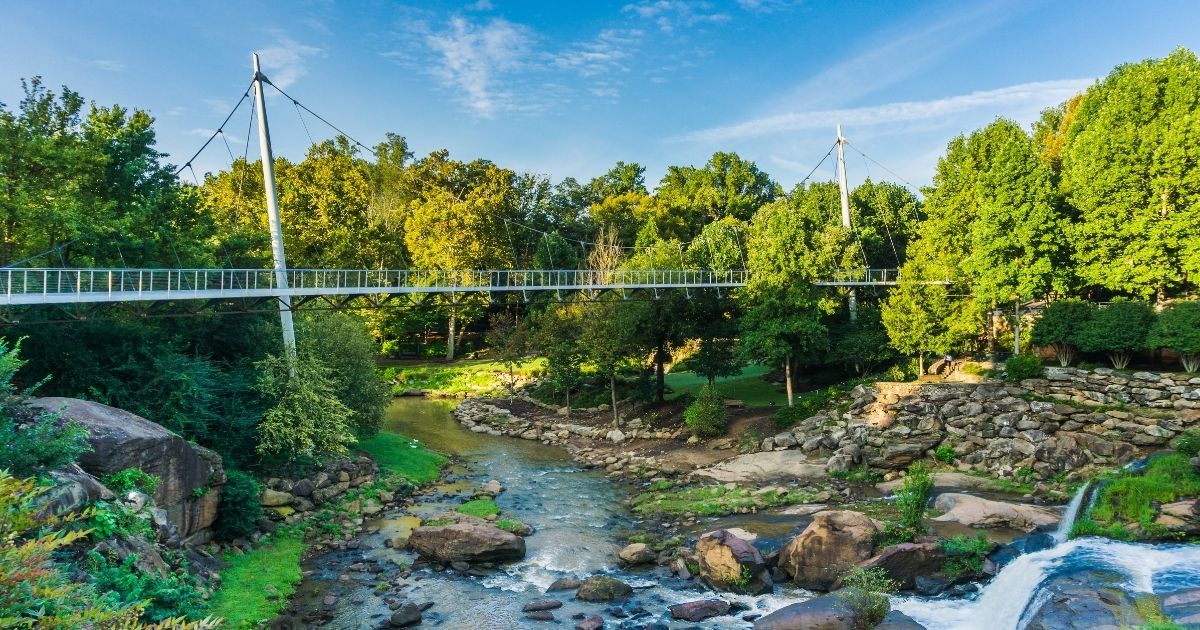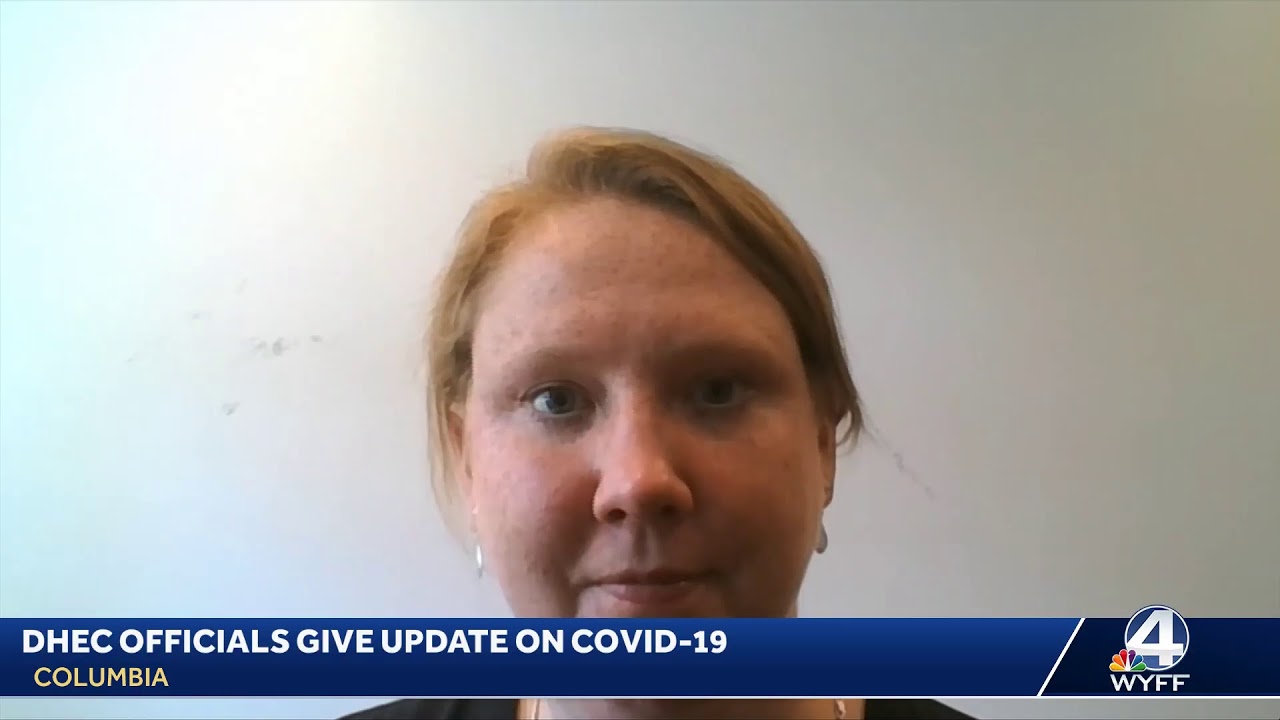On any major road in the Upstate there are signs for stores that sell CBD-oil products. Several local businesses, as well as national retailers, have jumped on the CBD bandwagon to sell it, and more than 100 farmers are licensed to grow hemp in the state — and regulators can barely keep up with the growth.
The Agriculture Improvement Act of 2018 removed hemp with no more than 0.3% THC concentration from the Schedule 1 controlled substance list, which opened the floodgates for CBD retailers to enter the market.
CBD — short for cannabidiol — is a compound found in both hemp and marijuana plants, which are cousins in the Cannabis sativa family. It’s the same compound in both plants, but the legality of it depends on whether it’s derived from hemp, which is legal, or marijuana, which is illegal in South Carolina. Legal CBD must have less than 0.3% of tetrahydrocannabinol (THC) component — that’s the compound responsible for psychoactive effect in users. If CBD has more than that amount, it’s an illegal substance in the state. Farmers who grow hemp must abide by the same rules and cannot grow a hemp plant with THC concentration of more than 0.3% on a dried weight basis.
$24.4 billion by 2025

The Brightfield Group, a market-research company, estimated the CBD industry made $4 billion in 2019, a 562% increase over 2018, and is on track to be a $24.4 billion industry by 2025. Only 14% of adults in the U.S. use CBD products, according to Gallup, so the market has plenty of room to grow.
In the Gallup Poll, of those who said they use CBD, 40% take the product for pain relief. This tracks with what local retailers are saying is a big reason for its popularity.
“I believe CBD became so popular so quickly because it does work for so many people,” said Christy Britt, owner of CBD Farmacy in Greenville. “We can only inform customers what CBD has done for us personally and how customers have received many benefits for a variety of issues they have.”
People who have had success with CBD oil claim it helps reduce anxiety and chronic pain, cramps associated with menstrual cycles, insomnia, arthritis, and depression. It has only been proven to be effective in treating severe epilepsy, hence the only FDA-approved drug containing CBD is the seizure-reducing medicine Epidiolex.
Federal regulations prohibit CBD retailers from making blanket claims about the effectiveness of treating medical conditions. In November 2019, the U.S. Food and Drug Administration sent warning letters to 15 companies for illegally selling CBD in ways that violated the Federal Food, Drug and Cosmetic Act, such as claiming it is a dietary supplement or that it treats certain diseases. Even so, the FDA recognizes that consumer interest is significant in CBD and states that it needs to work together with “the industry to fill in the knowledge gaps about the science, safety and quality of many of these products.”
‘A better alternative’

Britt and her husband became interested in CBD oil products after using it themselves and seeing positive results with their health. They opened their first store in 2017 in Taylors, which they sold as an affiliate after opening a second store in Greenville and a third in Columbia.
“Our customers are looking for a natural, nonaddictive alternative to their prescription pain medicine,” Britt said. “With the huge opioid epidemic that has a grip on our country, people are looking for answers and a better alternative.”
CBD Farmacy isn’t alone in its quick expansion. Purely CBD, a company that opened in the fall of 2018 with a storefront in Arlington, Texas, has exploded in growth. According to a map on the company website, Purely CBD now has 53 stores nationally, including three in the Upstate in Greer, Greenville and Easley.
Franny’s Farmacy is an Asheville, North Carolina-based farm and small business that produces seed-to-shelf CBD products. Franny Tacy, who co-owns the farm with her husband, Jeff Tacy, opened Franny’s Farmacy in late 2018 in Asheville, and is currently poised to open her eighth and ninth stores early this year, including one in Clemson. A Greenville location already exists.
“[CBD products are] certainly trending, but there will be fallout since so many tried to enter the industry,” Franny Tacy said. “There are huge differences between people [and] companies that are simply reselling CBD products and those of us who are growing hemp, processing and manufacturing our own products, and providing details throughout distribution.”
A new cash crop

Helping the boom of the CBD market in South Carolina are the farmers growing hemp plants. In 2017, the state legalized hemp farming and initially gave 20 permits to grow the crop over a total of 256 acres. In 2019, the South Carolina Department of Agriculture granted 114 farmers permits. According to Vanessa Elsalah, outreach specialist at the South Carolina Department of Agriculture, hemp was grown on 3,300 acres in South Carolina.
It’s a labor-intensive, expensive crop that can cost upward of $15,000 an acre to grow, yet has the potential to be profitable given the explosion of the CBD oil industry, says the South Carolina Department of Agriculture.
“Comparatively, growing an acre of strawberries may run a farmer $6,000,” said David DeWitt, hemp program coordinator at the Clemson Cooperative Extension Service.
Hemp has the potential to be a cash crop that is not only used for the CBD oil industry. It can also be used to produce textiles, clothes, rope, paper and more, according to the South Carolina Department of Agriculture website. Even though prices for CBD products are holding or ticking up, DeWitt said farmers are struggling with selling their current crops because of the lack of processors in the state and the abundance of hemp.
“In 2018, hemp was selling for $40 to $50 a pound, and just in the last couple weeks, I’ve had farmers tell me they were offered less than $10 a pound,” DeWitt said. “If we can grow, process and sell it here, that’s the ticket. It just takes time.”
Both farmers and CBD manufactures are looking ahead to potential regulations coming from both state and federal governments as they try to catch up.
“The CBD industry continues to grow and will have to become regulated for consumer safety and to establish rules for operating business,” Franny Tacy said. “Big business is waiting for federal regulations to come down by Oct. 31 when the farm bill expires. Expect to see well-known companies entering the CBD scene next year [and] also buy-outs, consolidation and closings of many existing CBD companies.”
Stats about CBD in South Carolina
- Epidiolex, which is used to treat severe epilepsy, is the only FDA-approved CBD drug product.
- According to the state Department of Agriculture, 3,300 acres were devoted to growing hemp in 2019, a 1,189% increase from 2018.
- CBD products derived from hemp are legal; hemp and marijuana come from the same plant species, Cannabis sativa, but they differ in concentrations of THC, according to the South Carolina Department of Agriculture.
- CBD hemp-derived products will not give users a high because of their low THC level, according to Molecules, a monthly peer-reviewed scientific journal
- CBD hemp oil products on the market must have no more than 0.3% THC, as defined by the 2018 Farm Bill.
- According to a South Carolina Department of Agriculture report, 114 hemp farmers were approved by South Carolina in 2019, a 465% increase from 2018.
- Sixteen hemp-farming permits were issued in 2019 to Upstate farmers, according to the South Carolina Department of Agriculture.
- South Carolina forbids food with CBD to be manufactured and sold in the state.
- The estimated cost to grow an acre of hemp, according to the South Carolina Department of Agriculture, is $10,000-$15,000.
- According to a 2019 Gallup Poll, 13% of Americans in the South say they use CBD products.
- The CBD market is projected to reach $24.4 billion by 2025, according to a 2019 report by the Brightfield Group, a consumer-insights and market-intelligence firm for the CBD and cannabis industries.
The post SC looks for green gold in state’s CBD business appeared first on UPSTATE BUSINESS JOURNAL.










